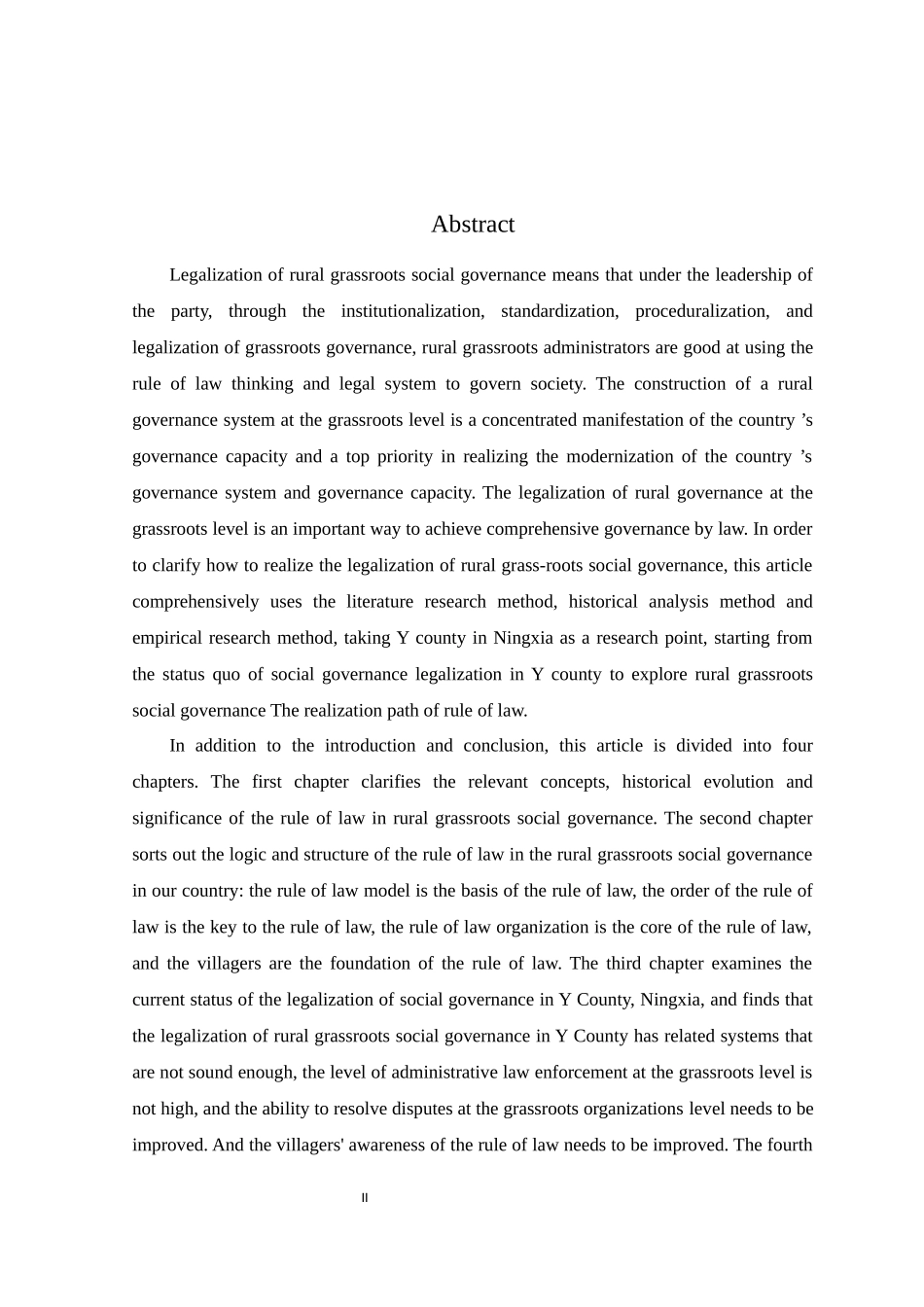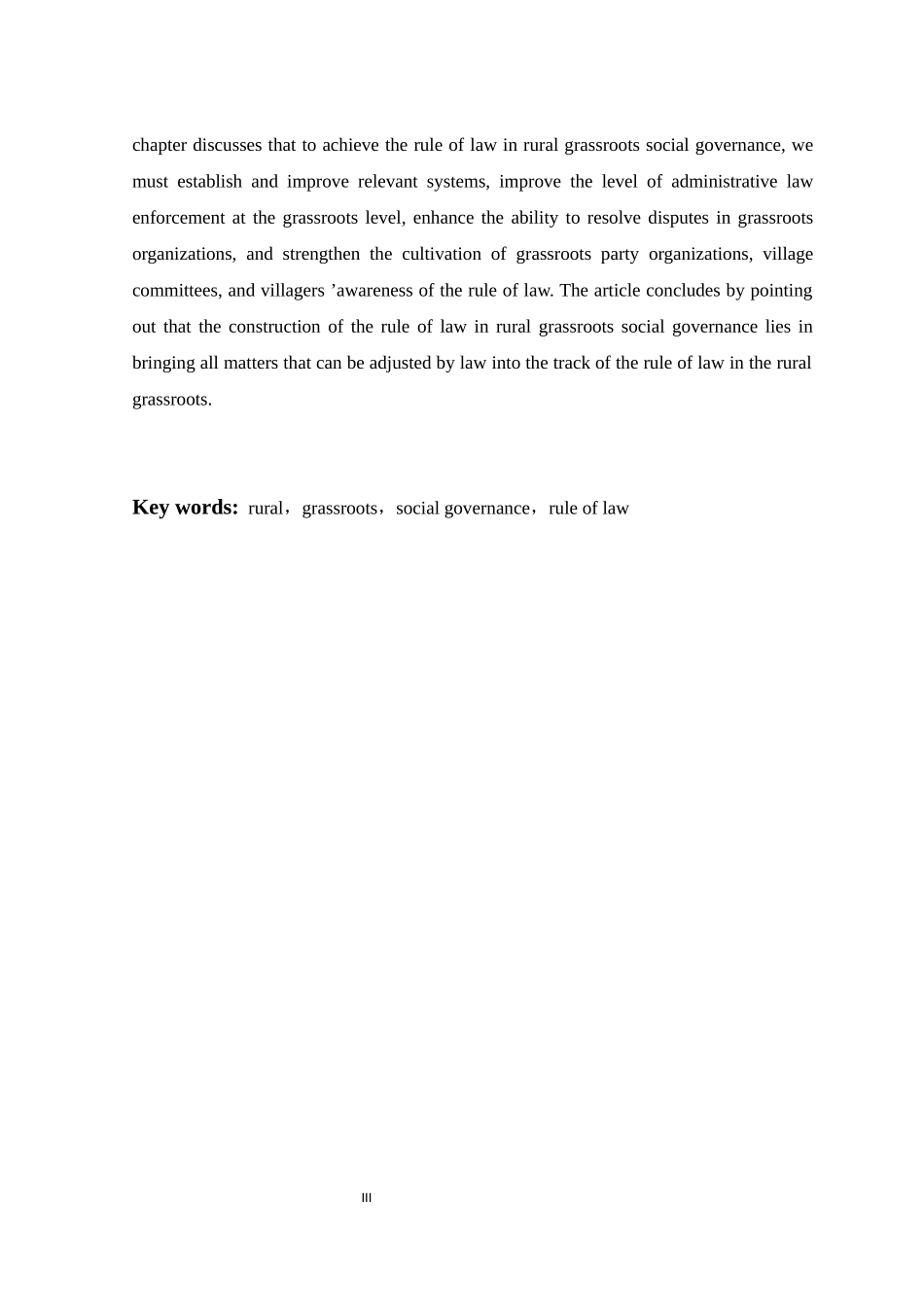I摘要农村基层社会治理法治化是指在党的领导下,通过基层治理的制度化、规范化、程序化、法治化,使农村基层治理者善于运用法治思维和法律制度治理社会。农村基层的社会治理体系建设是国家治理能力的集中体现,是实现国家治理体系和治理能力现代化的重中之重,农村基层社会治理法治化是实现全面依法治国的重要途径。为明确如何实现农村基层社会治理法治化,本文综合运用文献研究法、历史分析法和实证研究法,以宁夏 Y 县为调研点,从 Y 县的社会治理法治化现状入手,探寻农村基层社会治理法治化的实现路径。本文除绪论和结语外,共分为四章。第一章明确农村基层社会治理法治化的相关概念、历史沿革及意义。第二章梳理我国农村基层社会治理法治化的逻辑与结构:法治模式是法治的根本,法治秩序是法治的关键,法治组织是法治的核心,村民是法治的基础。第三章考察宁夏 Y 县社会治理法治化现状,发现 Y 县农村基层社会治理法治化存在着相关制度不够健全、基层政府行政执法水平不高、基层组织纠纷解决能力有待提升以及基层党组织、村民委员会和村民法治意识有待提高等问题。第四章探讨实现农村基层社会治理法治化必须建立健全相关制度,提高基层政府行政执法水平,提升基层组织纠纷解决的能力,加强基层党组织、村民委员会和村民法治意识的培养。本文最后指出,农村基层社会治理法治化建设在于把农村基层一切可以由法律来调整的事务都纳入法治轨道。关键词:农村,基层,社会治理,法治化IIAbstractLegalization of rural grassroots social governance means that under the leadership of the party, through the institutionalization, standardization, proceduralization, and legalization of grassroots governance, rural grassroots administrators are good at using the rule of law thinking and legal system to govern society. The construction of a rural governance system at the grassroots level is a concentrated manifestation of the country ’s governance capacity and a top priority in realizing the modernization of the country ’s governance system and governance capacity. The legalization of rural governance at the grassroots level is an important way to achieve comprehensive governance...


